The LGBT resource center at my alma mater was, somewhat ironically, little more than a jazzed-up storage closet. But it had a desk, some sofas, a beanbag chair, and a television. Gathered around it with some other students, lights dimmed, popcorn passed around in a big pink bowl, I saw myself represented on screen for the first time in my life. When Beautiful Thing was released in June 1996, it broke new ground for gay representation. Depicting the coming out and burgeoning love of Jamie and Ste (played exquisitely by Glen Berry and Scott Neil) and their life on an East London council estate, this charming film bucked tradition by focusing not just on gay characters, but on working class people. Even now, 25 years after its release, it is an intersection rarely depicted on-screen.
I was 18 the first time I saw the film, crowded in that resource center at Western Kentucky University. A world away from the British capital, Ste and Jamie’s council estate still reminded me so much of the mutual housing development in Dayton, Ohio in which I grew up—the nosy yet tight-knit community, the poverty and deprivation, the laughter and the music, the drugs and the crime. It is where I came of age, came out of the closet, and came to realize that my story–that of a working-class gay boy–was not one Hollywood is eager to tell.
While films like Moonlight and Brokeback Mountain received critical acclaim for their depictions of impoverished or low-income gay men, they remain the exception to the rule. The annals of gay cinema are instead filled with films like Get Real–another 90s British film about gay teens but set in leafy Basingstoke opposed to gritty inner London–and TV shows like Will and Grace about affluent urbanites. Their lives were aspirational but not relatable to a teenager from the Rust Belt.
The first time I saw Beautiful Thing, though, felt like a revelation. As opposed to the heroes of, say, Queer as Folk–affluent gay men living in a gentrified neighborhood–Jamie and Ste (our romantic heroes) have smaller, more parochial hopes and more immediate concerns than picking up a trick at the club. Theirs is a story not just about the struggles of being gay, but about doing it while skint and living on the edges of society.
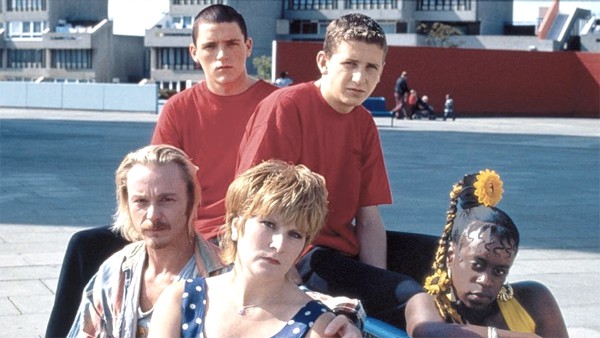 Beautiful Thing is as much about class as it is about sexuality, and the film is almost as much about the supporting characters as it is Jamie and Ste. Linda Henry, one of the most underrated British actresses of her generation, plays Jamie’s tough-as-nails mum Sandra. A single mother with a revolving door of boyfriends and a truant and emotionally distant son, Sandra dreams of moving off the estate into a flat above a pub she hopes to manage.
Beautiful Thing is as much about class as it is about sexuality, and the film is almost as much about the supporting characters as it is Jamie and Ste. Linda Henry, one of the most underrated British actresses of her generation, plays Jamie’s tough-as-nails mum Sandra. A single mother with a revolving door of boyfriends and a truant and emotionally distant son, Sandra dreams of moving off the estate into a flat above a pub she hopes to manage.
Sandra’s arch-nemesis is the boys’ frenemy, next-door neighbor Leah (played hilariously by Tameka Empson). Obsessed with Mama Cass, whose music provides most of the film’s soundtrack, Leah is a directionless teen who feels trapped by her life on the estate. “Nothing ever happens around here,” she complains in one memorable scene. “I gets up in the morning, bake my face in half a ton of slap, tong my hair with yesterday’s lacquer, that’s it. It’s the same every bleeding day. There’s fuck-all to look forward to.”
That’s a line I could have said growing up in Overlook. A subdivision of duplexes, my version of the council estate originated as emergency military housing for Wright-Patterson Air Force Base during the Second World War. After the war, the military built the troops proper housing, and Overlook became cheap housing for working-class folks who toiled in the factories around the Miami Valley.
Life in Overlook was incredibly insular. The outside world was unimaginable, and even Chicago–only five hours away–seemed as far away as London. Yet like the Thamesmead estate on which Jamie and Ste live, Overlook was a bustling neighborhood with a strong sense of community. I had my own girl next door who, like Leah, introduced me to music I had never heard (though in our case it was Tupac, not Mama Cass) and who was in turns my friend and enemy. When things with my parents got too much, I went down the street to the “neighborhood mom,” who would let me sit at her kitchen table until things cooled off at home.
And like Sandra, my parents handled their son coming out as best they could. Unlike Sandra, who picked a fight with Jamie even as she was trying to be supportive, my parents were preternaturally calm when I told them the news. I later found out that was because they were expecting me to inform them that I had gotten a girl pregnant, so their calmness was actually shock. Yet when Sandra assures Jamie “I’m not going to put you out in the morning like an empty bottle,” I could hear my own mother’s voice ringing in my ears. She might not have always been politically correct, but damn it, she loved her boy.
In that regard, Beautiful Thing felt both ahead of its time and rooted in a reality I understood. Many gay films revolve around the trauma of coming out. Unlike gay teens in in film and tv, even today, there was relatively little angst involved in Jamie and Ste coming out – to themselves, or to others.
Leah took the boys’ sexuality in stride, even if she did try to blackmail them for drugs. But that wasn’t homophobia, that was greed. Ste was afraid his brother and father would find out, but that was because they’d use it as an excuse to beat him–which they were already doing. And Sandra was more upset that Jamie hid his sexuality from her than anything, and she very quickly got over it. “I’ll never have grandkids,” she briefly lamented to a friend before busting out laughing.
Even Ste and Jamie accept their sexuality with relative ease. Aside from one moment at a party, where Ste refuses to go home with Jamie after Leah has threatened to out him, there is no great angst, no self-loathing, no internalized hatred. Much like I did when I looked in the mirror one day, said “I’m gay,” and sort of shrugged with disinterested surprise, Ste and Jamie just get on with getting off. It’s all relatively straightforward if you’ll pardon the pun. That is refreshing in 2021. It was revolutionary in 1996.
The film doesn’t shy away from the harsh realities of life in working poverty. The film opens with Jamie being bullied and Ste — much to Jamie’s betrayal — joining in. Ste is the more outgoing and assertive of the two boys, but he is also the most vulnerable, regularly being beaten by his father and older brother at home. It is after one of these beatings that Sandra finds Ste crying by the canal.
Crouching down and assuming the role of surrogate mum that so many working-class women have assumed in their communities, she comforts Ste as he sobs. “I’m not going back there,” he says. “I know love,” she agrees. And he doesn’t. She brings him home that night before going round to give Ste’s dad a piece of her mind. “This has got to stop!” she screams through the letterbox.
But it doesn’t, and Ste’s abuse becomes pivotal to the story. Leah tries to use it to blackmail him into giving her drugs (he doesn’t), and the abuse leads to Ste and Jamie finally acting on their growing attraction to one another. After one brutal beating which leaves his back bruised, Jamie rubs Sandra’s peppermint foot cream on Ste’s back. The lights are dimmed, giving the room a faint orange glow. In the living room, Sandra and her boyfriend watch The Sound of Music.
“Have you ever kissed anyone and stuck your tongue in?” Jamie asks hesitantly.
Ste scoffs. “Looking like this?”
“You ain’t ugly,” Jamie insists.
“They’ve made me ugly,” Ste replies, bitterly.
Jamie is quiet for a moment. “Here, turn over. I’ll do your front.”
Ste doesn’t move. “I can’t,” he says. Jamie isn’t sure why, but we are–Ste is visibly aroused. They argue about turning the light off and whether Jamie can sleep on Ste’s end of the bed, as they’re sharing one “top to tail” as Sandra calls it. Finally, Ste comes to Jamie’s end of the bed, laying next to him.
“Do you think I’m queer?” Ste asks.
“Don’t matter what I think.” Jamie looks at him. “Can I touch you?”
Despite being “a bit sore,” Ste allows it. Jamie strokes his cheek, staring into Ste’s eyes as “Sixteen Going on Seventeen” swells to a climax in the living room.
It is one of the most touching yet erotic moments I have ever seen on film, both sexy and heartbreaking in its intimacy and vulnerability. This is down to the performances of Berry and Neal, a brilliant script by Jonathan Harvey, and the visionary direction of Hettie Macdonald, whose most famous work is probably the 2007 Doctor Who episode “Blink.” Together, they capture the ennui of being a working-class kid who doesn’t want much, just for life to be marginally better, and the realization that not only are you seen as white trash by society, but you’re gay to boot.
Realizing you’re too gay for the working-class and too working-class for the posh gays is a difficult moment for any teen. That it’s a false dichotomy–there is no one way to be gay, just as the working-class are made up of multitudes–doesn’t matter. Your world is too small to see beyond the immediate, and the immediate is hell.
When Jamie tells Ste that Sandra knows about them, Ste becomes terrified that she’ll tell his father and brother. Sandra promises to hold her tongue as Ste sobs that he hates the local gay bar but that “there ain’t nowhere else” for him. Torn between two worlds, a product of both yet fitting in fully in neither, Ste’s anguish is one many LGBT folks have had to grapple with as we square the circle of intersecting identities.
Telling those stories and providing a new perspective on what it is to be gay is the legacy of Beautiful Thing. The film gives voice to a narrative that is still woefully underseen in the media, yet one that resonates with me as loudly now as it did when I first saw it nearly 20 years ago. It is a testament to the importance not only of diverse voices in terms of sexual orientation and gender identity, but of diverse voices within the LGBT community. That legacy truly is a beautiful thing.


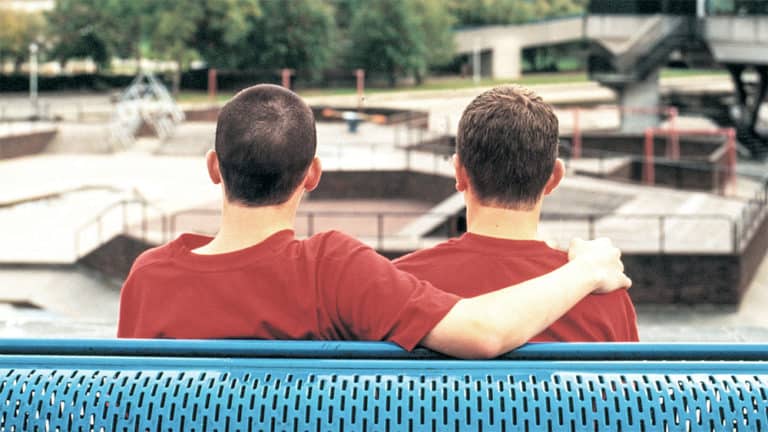
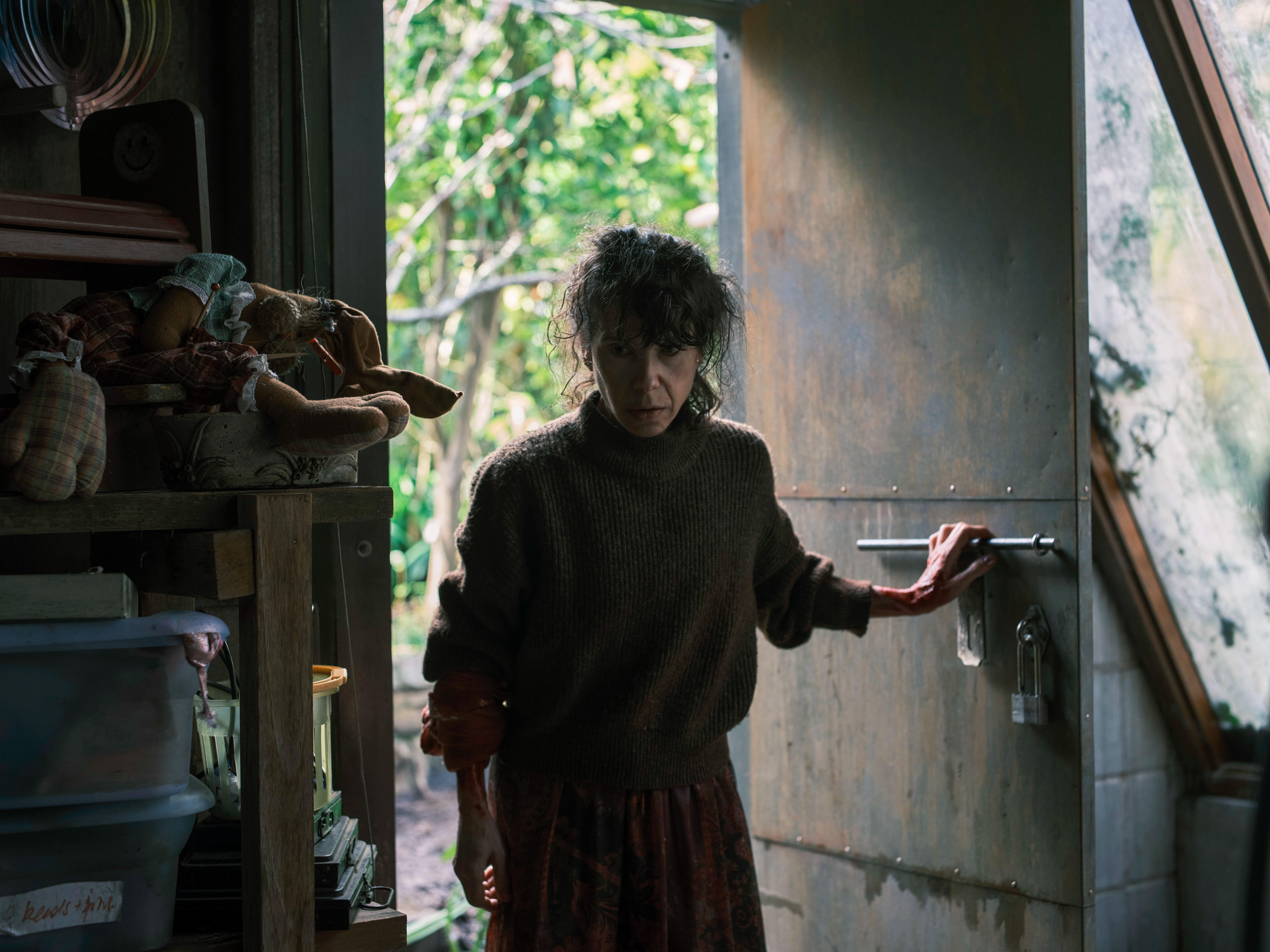
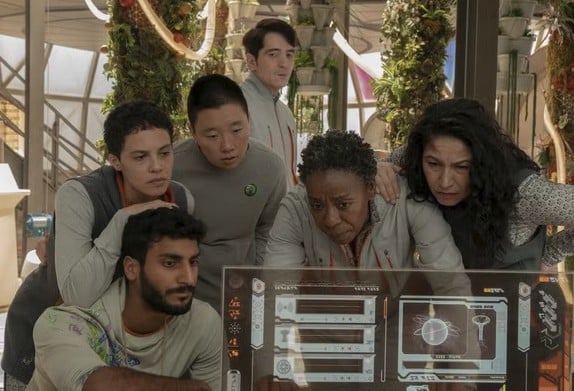
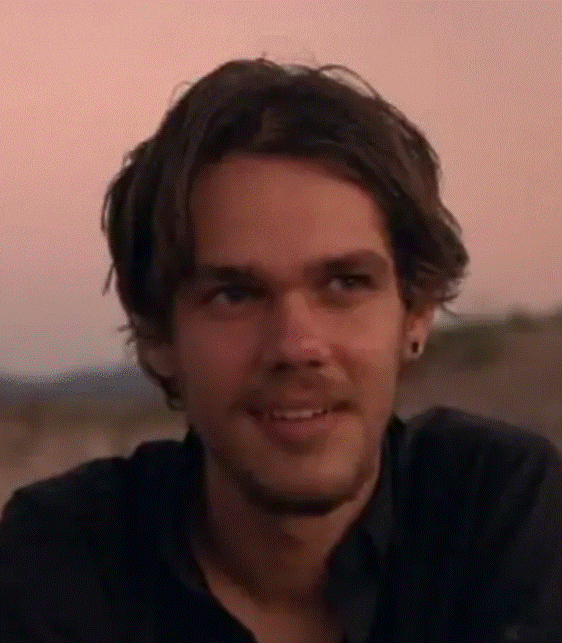
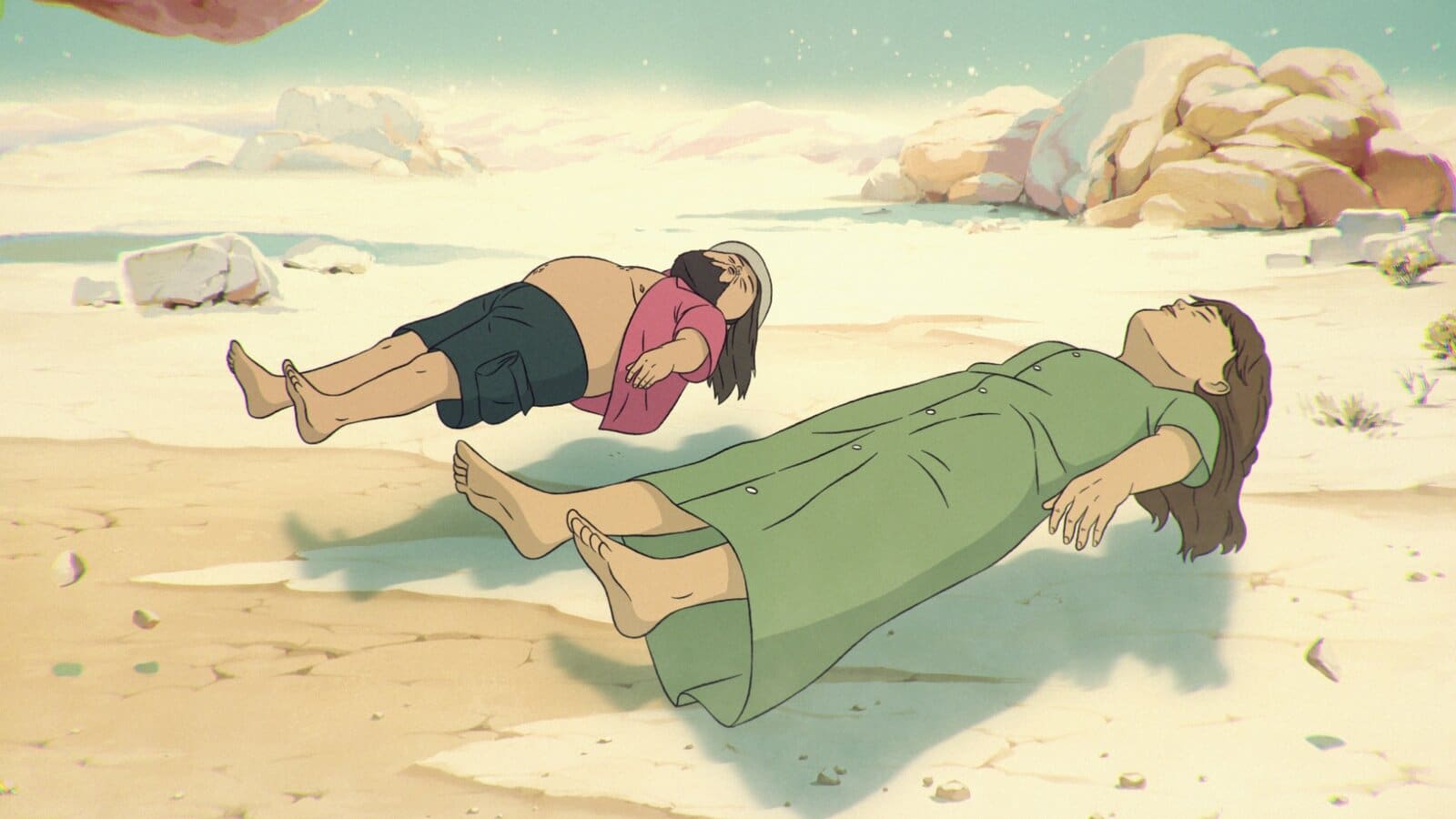


Start a watercooler conversation: